ADVERTORIAL BY LILLY
The management of advanced breast cancer continues to evolve, particularly in the frontline setting. To boost the success of endocrine therapies, cyclin-dependent kinase (CDK) 4/6 inhibitors have been introduced to help extend the utility of currently available regimens.
Breast cancer often arises from benign breast tissue that undergoes cumulative genetic changes until the cell is able to proliferate uncontrollably, either locally or in a metastatic fashion.1 The cancer can be characterised into different subtypes defined by oestrogen receptor (ER), progesterone receptor (PgR), and human epidermal growth factor receptor 2 (HER2) expression.2
Metastatic breast cancer remains an incurable disease with a high mortality rate.3 The median overall survival (OS) is around 3 years and the 5-year survival rate is around 25%.3
In general, better outcomes for patients with advanced breast cancer are associated with access to state-of-the-art medicines, monitoring and multidisciplinary care – including pharmacists.3
Treating advanced ER+/HER2 – breast cancer
ER+/HER2-negative breast cancer is treated with sequential endocrine therapy to suppress activity of the oestrogen receptor using selective oestrogen modulators like tamoxifen, selective oestrogen receptor degraders like fulvestrant, or to deplete oestrogen production using aromatase inhibitors or ovarian suppression.4
While endocrine therapy can be efficacious and well tolerated,5 both intrinsic and acquired treatment resistance remains a challenge, occurring in around one in two patients.2,4
In patients with endocrine resistance, single agent or combination chemotherapy have been the alternative treatment options, taking into account toxicity profiles and patient preferences.2 However, further understanding of the biology of treatment resistance in breast cancer led to exploration of potential targets to overcome these mechanisms6 and the development of new agents (typically used In combination with endocrine therapy) that allow chemotherapy to be delayed in these patients.2
New treatment target
CDK 4/6 is a downstream target of oestrogen receptor signalling.7 Development of CDK4/6 inhibitors has led to a significant shift in the treatment of advanced breast cancer.3 When used in combination with endocrine therapy (specifically an aromatase inhibitor or fulvestrant), CDK4/6 inhibitors improve progression-free survival (PFS) and objective response rates (ORR) beyond the levels achieved with endocrine therapy alone in both frontline and endocrine resistance settings.6,8
This treatment strategy is recommended for new or recurrent advanced breast cancer, as first- or endocrine resistance therapy and in cases of primary or secondary endocrine resistance. It is suitable for postmenopausal women and premenopausal or perimenopausal women in combination with a luteinising hormone-releasing hormone agonist (LHRH) agonist.3
CDK4/6 inhibitors for HR+/HER2 – advanced or metastatic breast cancer
Characteristics
Abemaciclib, palbociclib and ribociclib are all highly selective, reversible, small-molecule inhibitors of CDK4/6 with the same mechanism of action.9,10 They disrupt the cyclin D-dependent oestrogen receptor-induced proliferation of breast cancer cells by preventing CDK4/6-regulated phosphorylation of the retinoblastoma tumour suppressor protein and induce cell cycle arrest and tumour cell senescence.
Abemaciclib is the latest CDK4/6 inhibitor to be approved for use in Australia, following approval of both palbociclib and ribociclib in 2017. It is indicated for the treatment of HR+/HER2- locally advanced or metastatic breast cancer in combination with an aromatase inhibitor or fulvestrant as initial endocrine-based therapy or following prior endocrine therapy. In pre- or peri-menopausal women, the endocrine therapy should be combined with a luteinising hormone-releasing hormone (LHRH) agonist.11–13
All three agents are currently listed on the Pharmaceutical Benefits Scheme (PBS) for the initial treatment of locally advanced or metastatic HR+/HER2- breast cancer in combination with an aromatase inhibitor.14 Unlike the other CDK4/6 inhibitors, abemaciclib is continuously dosed and does not require scheduled treatment breaks.11,15
Efficacy
The clinical efficacy of CDK4/6 inhibitors in combination with endocrine therapy has been demonstrated in 7 double-blind, phase III clinical trials of women with HR+/HER2- advanced or metastatic breast cancer.5,15,16-28 Four of these trials were conducted in the first-line setting for women with no prior systemic therapy for advanced disease, while the other three were in the endocrine resistance setting for women who had relapsed or progressed on prior endocrine therapy.
In the first-line setting, women treated with abemaciclib, palbociclib, or ribociclib in combination with an aromatase inhibitor (letrozole or anastrozole) achieved significantly longer median PFS and higher ORR than women treated with the placebo and aromatase inhibitor combination.15,28 Data on overall survival (OS) are not yet available for most of these trials, in large part because the prolongation of PFS with the CDK4/6 inhibitors has resulted in insufficient deaths within the designated follow-up periods of these trials.6
Abemaciclib, palbociclib, and ribociclib in combination with fulvestrant have all demonstrated similar benefits to PFS and ORR in the endocrine resistance setting.17,18,24,26 Recent analyses have also shown that the addition of each of these CDK4/6 inhibitors to fulvestrant results in the numerical (palbociclib) or statistically significant (abemaciclib, ribociclib) prolongation of OS in women who had progressed on prior endocrine therapy.5,23,26
| ABEMACICLIB | PALBOCICLIB | RIBOCICLIB | |
|---|---|---|---|
| FORM | Oral tablet | Oral capsule or tablet | Oral tablet |
| DOSE | 150 mg, twice daily, continuously | 125 mg, once daily for 21 consecutive days followed by 7 days off for each 28-day cycle | 600 mg (3x 200 mg tablets), once daily for 21 consecutive days followed by 7 days off for each 28-day cycle |
| ADMINISTRATION | Take with or without food | Swallow whole with food (capsule) or with or without food (tablet) | Swallow whole with or without food |
| DOSE REDUCTIONS | Reduce by 50 mg at a time; discontinue for patients unable to tolerate 50 mg twice daily | Reduce by 25 mg at a time; discontinue if dose reduction below 75 mg/day required | Reduce by 200 mg at a time; discontinue if dose reduction below 200 mg/day required |
| DOSE ADJUSTMENTS | Required for severe hepatic impairment (reduce dose frequency to once daily) | Required for severe hepatic impairment (dose at 75 mg/day) | Required for severe renal impairment (start at 200 mg/day) or moderate and severe hepatic impairment (start at 400 mg/day) |
| TIME TO PEAK PLASMA CONCENTRATION | 8 hours | 6–12 hours (capsule) 4–12 hours (tablet) | 4 hours |
| TIME TO STEADY-STATE LEVELS | 5 days | 8 days | 8 days |
| ELIMINATION HALF-LIFE | 25 hours | 29 hours | 32 hours |
Recognising and managing adverse events
To help patients stay on treatment as long as beneficial, pharmacists can play an important role in educating patients about expected adverse events and potential ways to mitigate their impact. The most common adverse events observed in phase III clinical trials with the CDK4/6 inhibitors were haematologic toxicities (neutropenia, anaemia, and leukopenia), diarrhoea, infections, fatigue, and nausea.11–13 However, there are some differences in the toxicity profiles of each of the three CDK4/6 inhibitors.
While neutropenia is a class effect, it appears less pronounced with abemaciclib than with palbociclib and ribociclib.10,29 Ribociclib is associated with QT prolongation, so is contraindicated in patients with or at risk for QT prolongation and should not be used concomitantly with tamoxifen (coadministration increases QT prolongation) or medications that prolong the QT interval.14 Abemaciclib and palbociclib are not associated with QT prolongation.6 Abemaciclib is associated with more gastrointestinal toxicities than palbociclib or ribociclib, particularly diarrhoea.10,29
Managing the main adverse events associated with CDK 4/6 Inhibitor therapy
Diarrhoea
Abemaciclib exhibits additional activity against CDK9, which is thought to contribute to this increased incidence of gastrointestinal side effects.9,10 While diarrhoea is common with abemaciclib, it is most often low-grade diarrhoea that occurs during the first month of treatment and lasts for 1 to 2 weeks.11,17,27 For most patients, diarrhoea can be effectively managed with supportive care (fluids), anti-diarrhoeal medications and dose reductions.11,15,29 Treatment with anti-diarrhoeal medications such as loperamide should be initiated at the first sign of loose stools and dosing of abemaciclib can be paused or reduced if diarrhoea continues or worsens.6,11,29
Neutropenia
Neutropenia is another common side effect with all CDK4/6 inhibitors,31 and was reported in 45% of patients treated with abemaciclib.11 Grade 3 and 4 neutropenia occurred in 28%
of patients, with onset typically around 1 month after starting treatment.11, 27 Complete blood counts should be monitored before and during treatment with abemaciclib, and any haematologic toxicities including neutropenia can be managed with dose suspensions and reductions.11,29
Elevated liver function tests
Elevated alanine aminotransferase (ALT) and aspartate aminotransferase (AST) levels were each reported in around 15% of patients who received abemaciclib, with grade 3 or 4 elevations in about 5% of patients.11 Early monitoring of liver function tests is recommended for patients treated with abemaciclib and elevations in ALT/AST levels can usually be managed with dose suspension and reductions.11,27,29
Elevated creatinine
Increased serum creatine levels are observed in many patients treated with CDK 4/6 inhibitors. Onset occurs within the first month of treatment, remaining stably elevated throughout treatment, and returning to normal levels after discontinuation of treatment. However, glomerular function is not affected by this drug-induced increase in creatinine, and other markers of renal function are not altered.11,29
Other important signs and symptoms to advise patients to look out for and report to their doctor include fever (as neutropenia and infection may be associated with treatment), signs of deep vein thrombosis and pulmonary symptoms indicative of pneumonitis.11
Role of pharmacists in patient care
Education on dosing and side effect management are key responsibilities for pharmacists managing patients on CDK4/6 inhibitors. In addition, it is important to maintain accurate medication history, including assessment for concomitant use of drugs known to prolong the QT interval and drugs or other substances that inhibit or induce CYP3A.6 As primary healthcare professionals in frequent contact with patients, pharmacists are well placed to ensure the multidisciplinary team care is being utilised for the best possible outcomes.
Key points
|
References
- Rozeboom, B., N. Dey, and P. De, ER+ metastatic breast cancer: past, present, and a prescription for an apoptosis-targeted future. Am J Cancer Res, 2019. 9(12): p. 2821-2831.
- Presti, D. and E. Quaquarini, The PI3K/AKT/mTOR and CDK4/6 Pathways in Endocrine Resistant HR+/HER2- Metastatic Breast Cancer: Biological Mechanisms and New Treatments. Cancers (Basel), 2019. 11(9).
- Cardoso F, et al., 5th ESO-ESMO international consensus guidelines for advanced breast cancer (ABC 5). Ann Oncol, 2020.
- Reaz, S., D. Tamkus, and E.R. Andrechek, Using gene expression data to direct breast cancer therapy: evidence from a preclinical trial. J Mol Med (Berl), 2018. 96(2): p. 111-117.
- Sledge, G.W., Jr., et al., The Effect of Abemaciclib Plus Fulvestrant on Overall Survival in Hormone Receptor-Positive, ERBB2-Negative Breast Cancer That Progressed on Endocrine Therapy-MONARCH 2: A Randomized Clinical Trial. JAMA Oncol, 2019.
- Ahn, S., et al., HER2 status in breast cancer: changes in guidelines and complicating factors for interpretation. J Pathol Transl Med, 2020. 54(1): p. 34-44.
- Boyle, F., et al., Hormone receptor positive, HER2 negative metastatic breast cancer: Impact of CDK4/6 inhibitors on the current treatment paradigm. Asia Pac J Clin Oncol, 2018. 14 Suppl 4: p. 3-11.
- Di Leo, A., et al., Prognostic characteristics in hormone receptor-positive advanced breast cancer and characterization of abemaciclib efficacy. NPJ Breast Cancer, 2018. 4: p. 41.
- Corona, S.P. and D. Generali, Abemaciclib: a CDK4/6 inhibitor for the treatment of HR+/HER2- advanced breast cancer. Drug Des Devel Ther, 2018. 12:p. 321-330.
- Marra, A. and G. Curigliano, Are all cyclin-dependent kinases 4/6 inhibitors created equal? NPJ Breast Cancer, 2019. 5: p. 27.
- Information, V.a.A.P.
- IBRANCE (palbociclib) Approved Product Information.
- KISQALI (ribociclib succinate) Approved Product Information.
- Australian Government. Department of Health. Pharmaceutical Benefits Scheme. 2020; Available from: www.pbs.gov.au.
- Corona, S.P. and D. Generali, Abemaciclib: a CDK4/6 inhibitor for the treatment of HR+/HER2- advanced breast cancer. Drug Des Devel Ther, 2018. 12:p. 321-330.
- Marra, A. and G. Curigliano, Are all cyclin-dependent kinases 4/6 inhibitors created equal? NPJ Breast Cancer, 2019. 5: p. 27.
- Sledge, G.W., Jr., et al., MONARCH 2: Abemaciclib in Combination With Fulvestrant
in Women With HR+/HER2-Advanced Breast Cancer Who Had Progressed While Receiving Endocrine Therapy. J Clin Oncol, 2017. 35(25): p. 2875-2884. - Cristofanilli, M., et al., Fulvestrant plus palbociclib versus fulvestrant plus placebo for treatment of hormone-receptor-positive, HER2-negative metastatic breast cancer that progressed on previous endocrine therapy (PALOMA-3): final analysis of the multicentre, double-blind, phase 3 randomised controlled trial. Lancet Oncol, 2016. 17(4): p. 425-439.
- Finn, R.S., et al., Palbociclib and Letrozole in Advanced Breast Cancer. N Engl J Med, 2016. 375(20): p. 1925-1936.
- Hortobagyi, G.N., et al., Updated results from MONALEESA-2, a phase III trial of first-line ribociclib plus letrozole versus placebo plus letrozole in hormone receptor-positive, HER2-negative advanced breast cancer. Ann Oncol, 2018. 29(7): p. 1541-1547.
- Im, S.A., et al., Overall Survival with Ribociclib plus Endocrine Therapy in Breast Cancer. N Engl J Med, 2019. 381(4): p. 307-316.
- Rugo, H.S., et al., Palbociclib plus letrozole as first-line therapy in estrogen receptor-positive/human epidermal growth factor receptor 2-negative advanced breast cancer with extended follow-up. Breast Cancer Res Treat, 2019. 174(3): p. 719-729.
- Slamon, D.J., et al., Overall Survival with Ribociclib plus Fulvestrant in Advanced Breast Cancer. N Engl J Med, 2020. 382(6): p. 514-524.
- Slamon, D.J., et al., Phase III Randomized Study of Ribociclib and Fulvestrant in Hormone Receptor-Positive, Human Epidermal Growth Factor Receptor 2-Negative Advanced Breast Cancer: MONALEESA-3. J Clin Oncol, 2018. 36(24): p. 2465-2472.
- Tripathy, D., et al., Ribociclib plus endocrine therapy for premenopausal women with hormone-receptor-positive, advanced breast cancer (MONALEESA-7): a randomised phase 3 trial. Lancet Oncol, 2018. 19(7): p. 904-915.
- Turner, N.C., et al., Palbociclib in Hormone-Receptor-Positive Advanced Breast Cancer. N Engl J Med, 2015. 373(3): p. 209-19.
- Turner, N.C., et al., Overall Survival with Palbociclib and Fulvestrant in Advanced Breast Cancer. N Engl J Med, 2018. 379(20): p. 1926-1936.
- Goetz, M.P., et al., MONARCH 3: Abemaciclib As Initial Therapy for Advanced Breast Cancer. J Clin Oncol, 2017. 35(32): p. 3638-3646.
- Ettl, J., Management of Adverse Events Due to Cyclin-Dependent Kinase 4/6 Inhibitors. Breast Care (Basel), 2019. 14(2): p. 86-92.
This material is designed to be educational and non-promotional. It is offered so that the pharmacist receives accurate and important health information about the Lilly product, so that the pharmacist can discuss, with patients prescribed the Lilly product by their HCP, the medication consistent with the pharmacist’s professional responsibilities. By providing this information, Lilly is in no way encouraging the pharmacist to prescribe or dispense medicine without a prescription or as otherwise prohibited by law. If you need immediate information about a Lilly product or want to report an adverse event or side effect, please call: (AU) 1800-4-LILLY (1800 454 559), Available Mon – Fri, 9am – 5pm AEST.



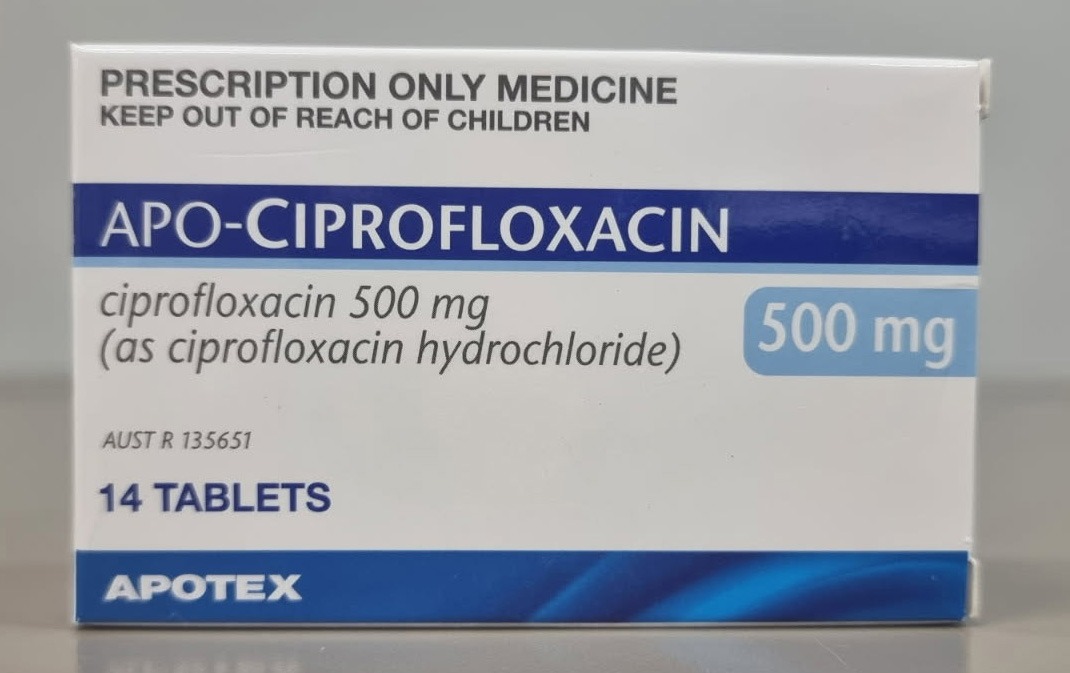
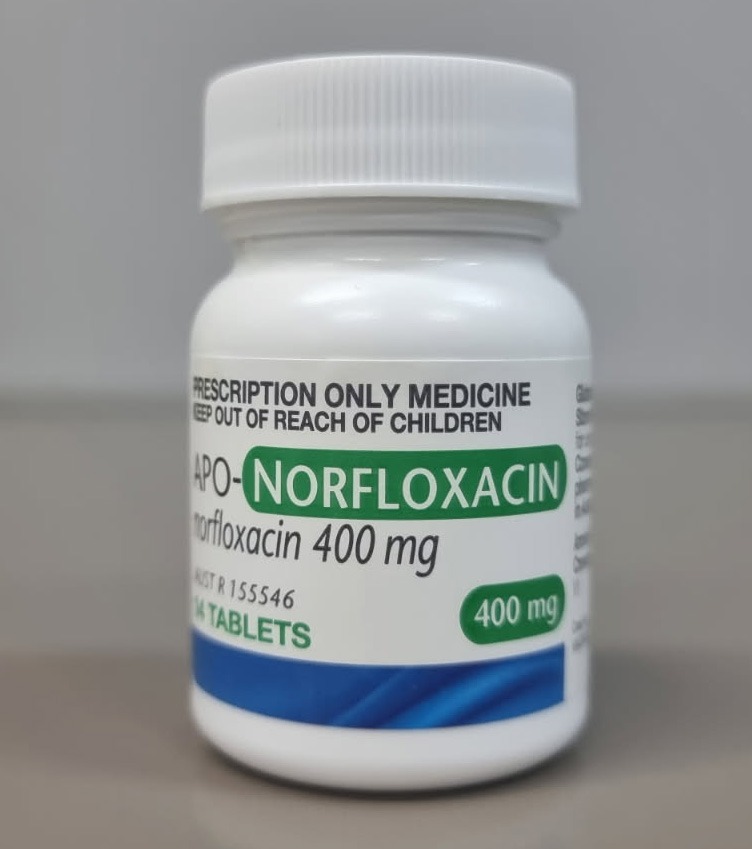
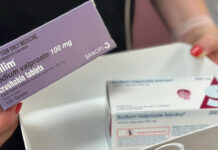

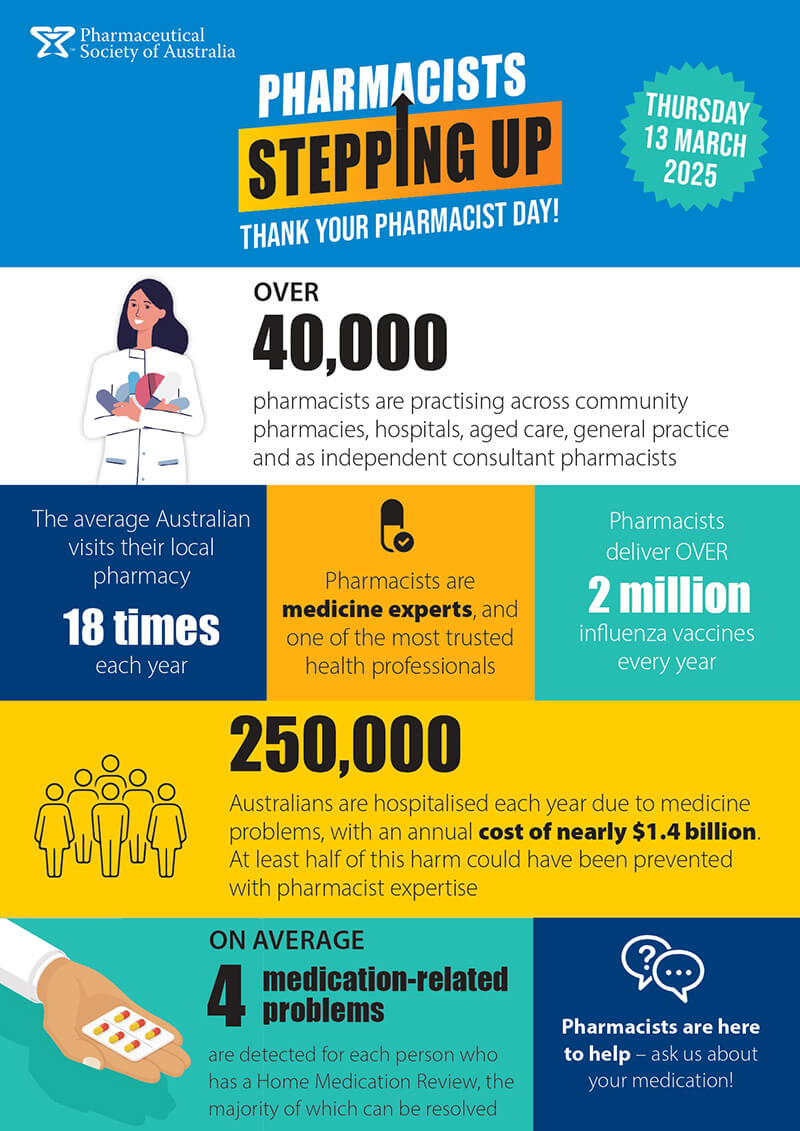
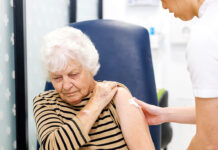

 This article was sponsored and developed in collaboration with PSA and Carers NSW[/caption]
However, pharmacists may perceive medication errors or non-adherence as a carer’s inability to fulfil this role,
This article was sponsored and developed in collaboration with PSA and Carers NSW[/caption]
However, pharmacists may perceive medication errors or non-adherence as a carer’s inability to fulfil this role,







